The DPA-SABRE team conducted 18 two-day training courses for 150 human rights defenders (HRDs) (90 women, 60 men) across five provinces, focusing on human rights, business and human rights (BHR), the FPIC principle (Free, Prior, and Informed Consent), and Natural Resource Management (NRM). The training aimed to build HRDs’ capacity in human rights and BHR principles, enhance advocacy skills with evidence-based approaches, and provide practical knowledge on FPIC and NRM to address issues from the mining companies and economic land concessions. Designed for easy understanding and grounded in real community examples, the sessions led to improved knowledge among participants, who subsequently organized awareness meetings, engaged in dialogue on natural resource management, and advocated for community and Indigenous Peoples’ rights. Supported by an advocacy team through the Signal app, HRDs, especially youth, effectively used digital platforms for data collection on mining impacts, showcasing their enhanced skills and active participation.
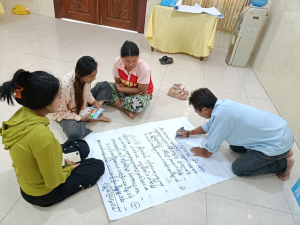
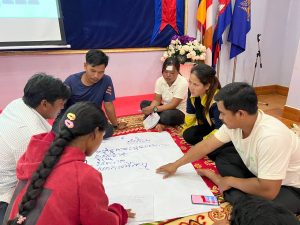
Group discussion of the HRDs on the BHR concept and the advantages and disadvantages of the business companies in Kratie and Mondulkiri province.
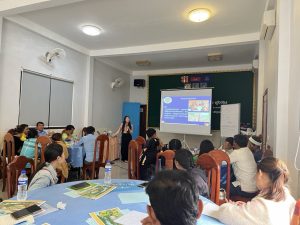
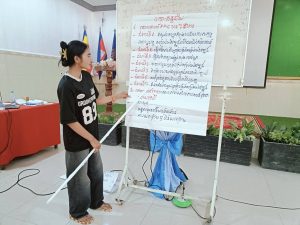
The HRDs actively participated in the FPIC and NRM training and reflected on the seven steps of the FPIC principle in Mondulkiri and Ratanakiri provinces.
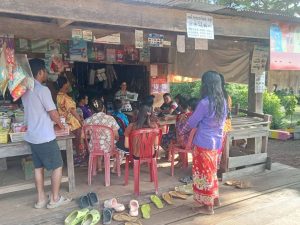
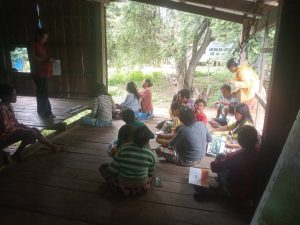
The HRDs of the SABRE project conducted the awareness meeting on BHR, FPIC and NRM with community members and general villagers in Stung Treng and Kratie province.
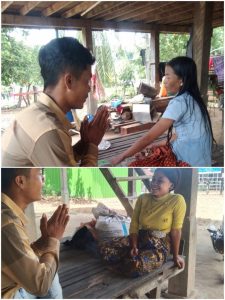
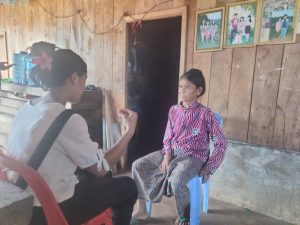
The HRDs used the KoboCollect app to collect real-time data on the impact of mining companies on community members in Ratanakiri and Preah Vihear provinces.
Strengthening Accountable Business Practices through Respect and Engagement (SABRE)
Funding support from the EU ![]()
